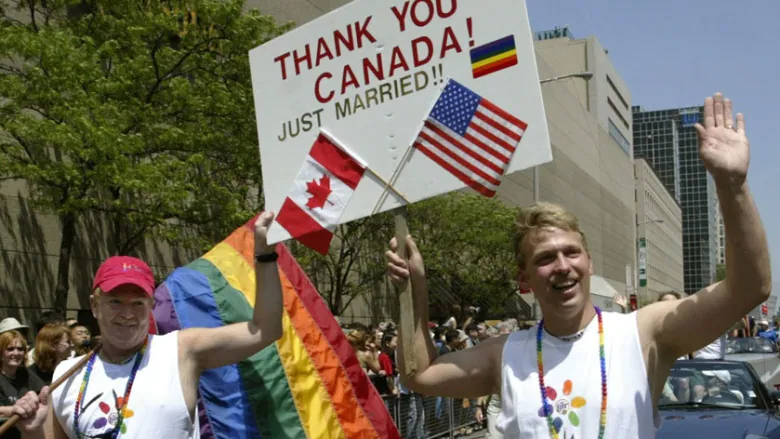Love + Litigation = Marriage: Canadian Same-Sex Marriage & the International Implications
Dr. Valerie Korinek

Love and Litigation explores the intersections of marriage, nation state, the law, and social justice for queer couples and families. After the Court of Appeal ruled that prohibiting same sex couples from marrying was unconstitutional (2003), thousands of same-sex couples applied for marriage licenses and many were international couples.
Canada was the third country in the world to legalize same-sex marriage (2005) but unlike the Netherlands and Belgium, Canada did not restrict marriage licenses to its citizens - the policy extended to international couples. The legal legacy of these ruling extends beyond Canada's borders. Oral histories collected for this project illuminate the transnational and international importance of equal marriage.
Thousands of same sex couples from the United States, Great Britain, and beyond travelled to this surprisingly new “destination wedding location” and some of them, armed with their Canadian wedding certificates home, became both intentional and inadvertent activists in their home contexts. Much as been written in the American context about the political, religious and social challenges of same-sex marriage acquisition, and in the international context much has been written about specific national contexts. Little work is know about the Canadian dimension, its short-term and longer term international impact, and how such an unlikely national context played a role in international changes.
From the first attempt in 1972 by a Winnipeg same-sex couple to access legal marriage, to radical gay activism, the inclusion of sexuality into the Charter of Rights and Freedoms, and to the important - albeit neglected - legal case M v. H in 1999, this project analyzes the long winding road to same sex marriage in Canada, and its international implications.
